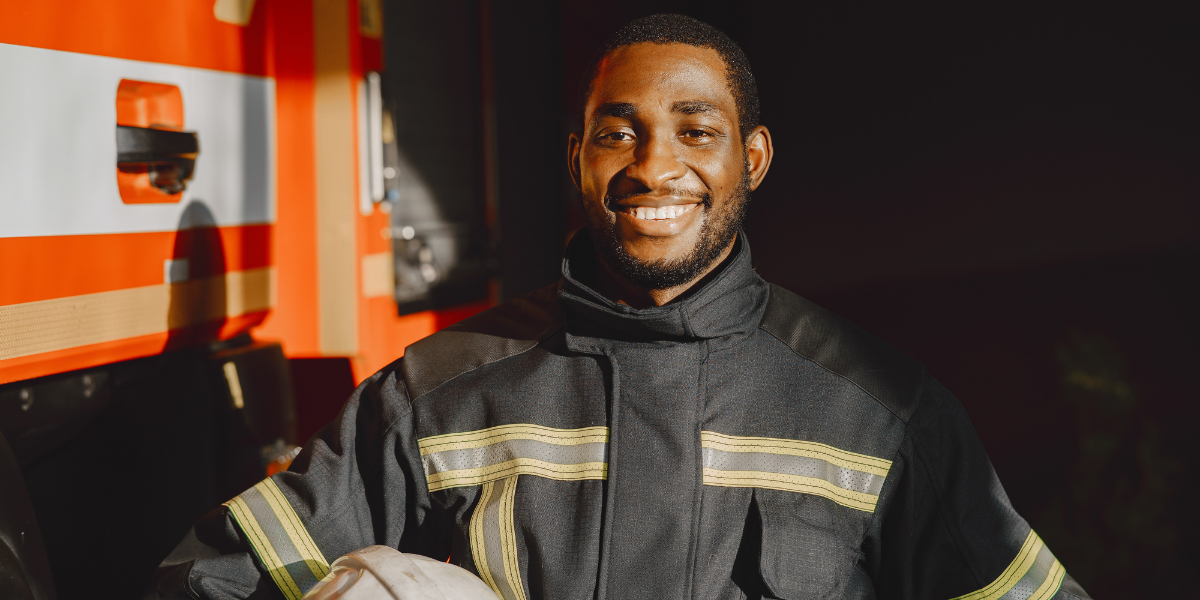.png)
How to Turn Post Traumatic Stress Into Post-Traumatic Wisdom
Trauma is a seismic event in our lives. It cracks open the ground beneath us, suddenly and irreversibly changing our lives. For some, it can split apart the very foundation of everything they thought they knew about the world and their place in it.
growing after suffering
Sometimes, the tremendous effort this requires can become overwhelming. For some individuals, rebuilding their world can feel insurmountable. Add in social isolation or repeated traumatic events, and it feels even more impossible. The difficulty concentrating, sleeping, or interacting with others doesn't seem to improve; despite their best efforts to piece things back together, their foundation seems to remain stubbornly cracked. They develop post-traumatic stress disorder (PTSD).
Trauma changes us forever. It's irreversible—we can't go back to the people we were before our world fell apart. PTSD only worsens this devastation in our lives. It begs the question: How can a human recover when something has torn apart their very core?
post traumatic growth
The answer seems to exist somewhere within an idea that has been present in philosophy, literature, religion, and nature for centuries. The phoenix in Egyptian mythos, the redemption for the believers in Christ's resurrection, and Viktor Frankl's Man's Search for Meaning all call upon this theme. This idea is a long-recognized truth: we can rise from the ashes of pain into a glorious, fiery rebirth. For those struggling with trauma, this is post-traumatic growth.
Post-traumatic growth (PTG) is both a process and an outcome of rebuilding one's identity in the aftermath of trauma. It develops from an individual's complex interaction with the ways trauma affects their life and often contributes to greater well-being and life satisfaction.
PTG typically manifests in one or more of the following forms:
- Increased appreciation of one's life,
- Increased sense of personal strength,
- Improved relationships,
- Increased openness to life's possibilities, and
- Spiritual development, including a sense of life purpose
So, how does one build PTG?
how to nurture post-traumatic growth
- Re-think and re-build your world.
Every time you think about your trauma, you're engaging in a process called cognitive engagement. Cognitive engagement can be deliberate or intrusive, but it is how our mind deliberates and makes sense of the way trauma has shaken our core beliefs. While people commonly consider rumination a distressing symptom of PTSD, higher levels of rumination are actually associated with higher levels of post-traumatic growth. This is a game changer: instead of fighting against our trauma's frequent visits to our brain, we are better off collaborating with it. This is where we gain the wisdom that fuels PTG. - Share your experiences to receive support.
The next step from cognitive engagement is to share your process with a supportive environment. Disclosing your thoughts and feelings about your trauma to people you trust can help reduce depression and increase post-traumatic growth. This is especially true when sharing with others who have gone through a similar traumatic experience, who can offer deeper support and normalize what you're going through. Individual and group counseling experiences can also provide profound healing through relationships and help connect you with others who have experienced similar trauma. - Know thyself.
Additional factors such as personality traits, resilience, resources, the type of trauma experienced, and even your demographics could play a role in what you have going for (or against) you in your journey to develop post-traumatic growth. You can use self-knowledge and self-awareness to meet your needs and make judgment calls to further nurture PTG. A counseling relationship can also help you develop these skills. - Be flexible with coping strategies.
Coping strategies play a huge role in facilitating post-traumatic growth; they can influence behavior, strengthen adaptability, and help with meaning-making. Research shows that a variety of coping mechanisms can contribute to PTG, some even contradictory to one another! The key underlying these is not the mechanisms themselves, but in coping flexibility: having a balance between coping skills that allow for a reduction of distress and those that allow for processing. Using avoidance and direct engagement with trauma as needed can be an important skill for growth; using both allows you to meet your needs dynamically through the process. - Take an active role in your story
Traumatic events are unfathomable, horrific and absurd. Trauma is often associated with an ultimate loss of control over your body and sometimes even your life. PTSD is a normal reaction to an abnormal event. But if left untreated, it can leave you feeling like a ghost—haunting your life, but never really living it. Post-traumatic growth acknowledges the gut-wrenching pain of PTSD and trauma. It acknowledges that you had your world shattered beneath you. It makes space for the grief of the world you thought you knew.
Post-traumatic growth knows there is no going back to who you were before trauma struck your life. But it also gives you an important call to action: you can rise from the ashes of pain into a glorious, fiery rebirth.
Resisting disengagement and instead taking action in the face of trauma can foster resilience that can be protective against PTSD symptoms. Taking growth action is the last step in developing your own post-traumatic growth. This action can be anything from volunteering with those who have experienced similar trauma, to seeking social connection and belonging, or taking the brave step to see a therapist.
Ultimately, it is defiance—a rebellion against the devastation of trauma's grasp. To confront what broke your world and to choose to rebuild, anyway. To know that even though life is fragile, you can also choose to see it as precious.
If this all sounds familiar, and you're ready to rebuild your foundation—you don't have to go it alone. The right therapist will give you a supportive place to share and help you find the tools you need to develop post-traumatic growth. You are worth the effort it takes to develop your own post-traumatic growth.
If you're ready to rise from your own ashes, we're ready to see you through it. Find a Lifeologie Counseling therapist near you who specializes in trauma and PTSD.

About Lifeologie
Lifeologie Counseling was founded in 2000 with one goal in mind — to bring a fresh, innovative approach to the everyday problems of life. Creative solutions to stuck problems®. With our unique multi-specialty, collaborative approach, Lifeologie Counseling helps individuals and families heal their wounds and break out of old, unhealthy patterns.




